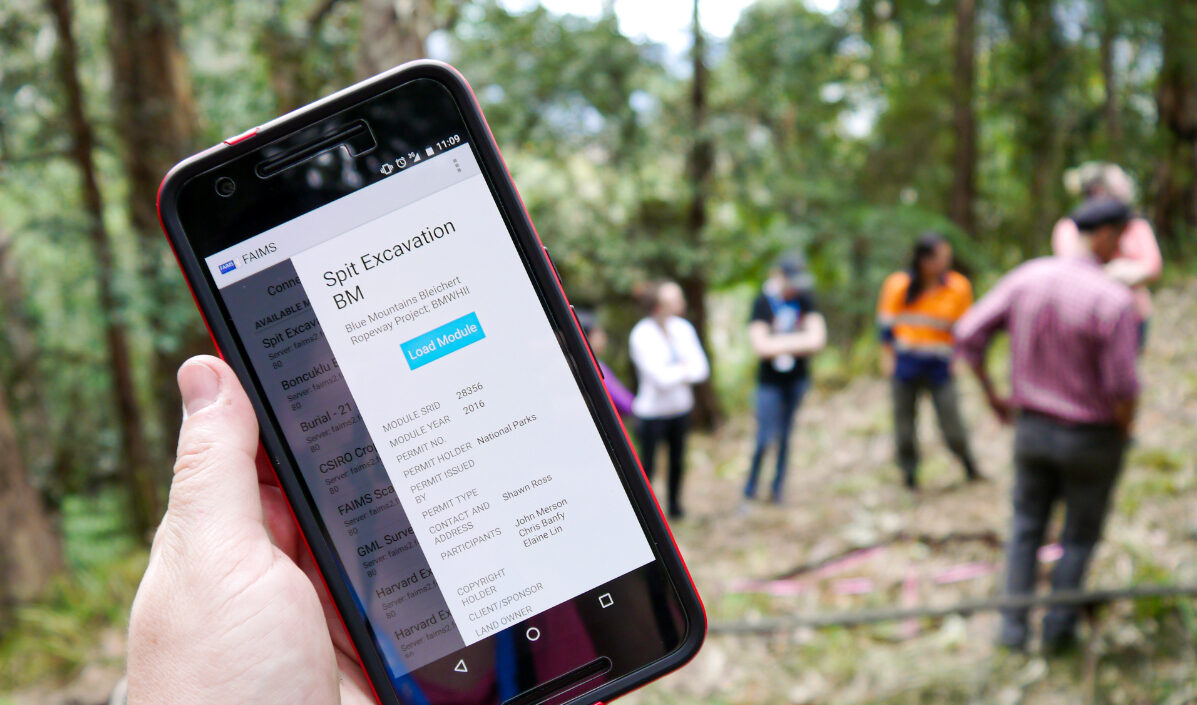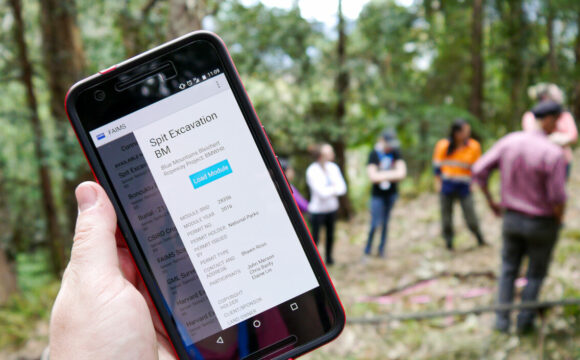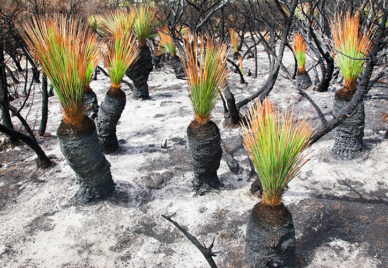
The Challenge
Capturing data in the field is expensive, error-prone and inefficient. Field researchers often organise information idiosyncratically, using an ad-hoc mix of hard copy and bespoke digital formats.
This slows the publication of field research and inhibits the application of new techniques to old datasets or the combination of datasets from multiple studies.
The Response
FAIMS 3.0 is transforming field research by overcoming the ‘digitisation bottleneck’, and reducing the cost of creating digital and FAIR-compliant data. The project re-engineered Field Acquired Information Management Systems (FAIMS) Mobile, a mature but dated system for producing custom electronic notebooks for field data collection.
FAIMS 3.0 integrates with existing virtual environments for data analysis and repositories. These integrations cover general use, such as Cloudstor, SWAN and Open Context, as well as those specific to disciplines such as AVRE Geo DeVL for geoscientists, ALVEO for human communication science and tDAR for archaeology.
These integrations bridge the data capture and processing stages of fieldwork and facilitate a seamless workflow from data creation, through cleaning and analysis, to publication and archiving.
The Outcomes
Access FAIMS3, the latest version of FAIMS Mobile.
This project will make quality, comprehensive datasets the norm. The FAIMS Mobile platform streamlines offline field-data collection by automatically synchronising data collected by multiple teams in the field when they can connect to a network, eliminating double-entry, while automating exports, saving time and reducing errors.
Who Will Benefit
Field based researchers will be able to gather high quality data using customised data collection applications tailored to the requirements of diverse research communities including academic, government, and industry users.
This will accelerate knowledge generation by producing FAIR datasets and documenting research processes, supporting large-scale studies and improving transparency.
The Partners
- Macquarie University
- CSIRO
- Aarhus University, Denmark
- AARNet
- UNSW
- La Trobe University
Contact the ARDC
Timeframe
Current Phase
ARDC Co-investment
Project lead
Categories
Related Case Studies






